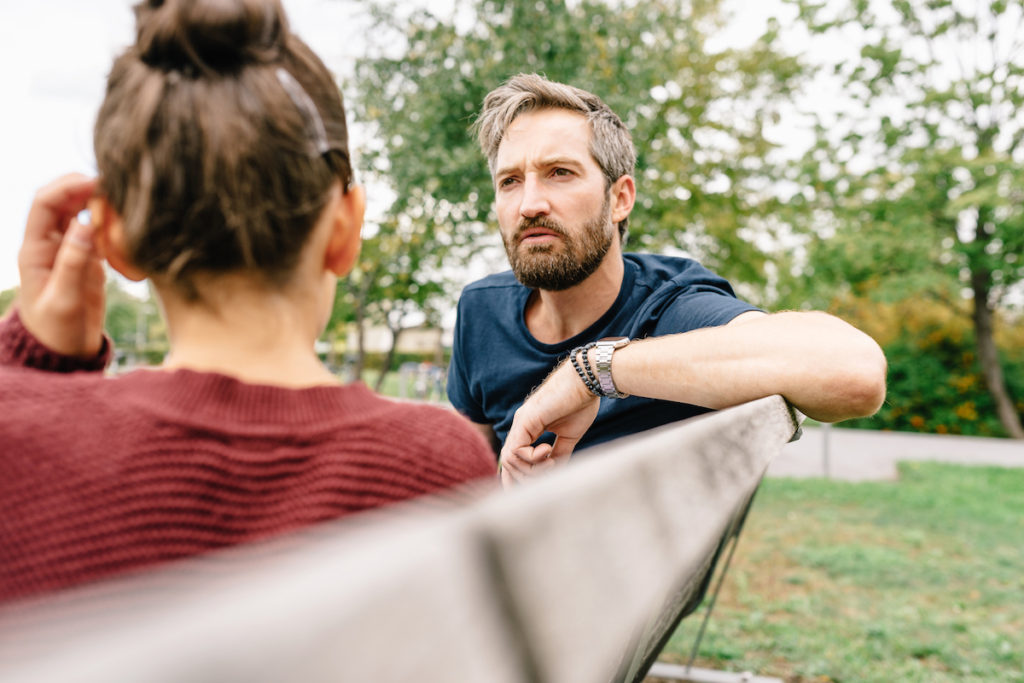I’m in a season of my life in which many of my friends are starting to have children. In fact, three of my girlfriends are due with their first child in the next month. With all of the excitement that surrounds new parenthood, there’s also a lot of worries – and a lot of things they want to get right as they bring their new child into this world. “What can I do to prevent my child from becoming an alcoholic?” “What can I do to make sure my child never becomes addicted to drugs?” For some parents, this often comes out in a sense of defiance: A “not-my-kid” mentality. After all – if you raise your children in a home that doesn’t allow alcohol; in a home that doesn’t acknowledge drugs; in a home with strict rules; in a home with lots of activities such as sports, musical instruments, academics, Sunday school and family game nights – then addiction stands no chance in your family… Right? On the other side of the coin, at Vertava Health, so often we hear parents lamenting over what they did wrong. Parents call our treatment specialists wondering what they did – or failed to do – that caused their child’s addiction. [middle-callout] While many experts say that modeling a sober lifestyle is the best way to promote a sober lifestyle, there are also several other things in which we advise parents:
-
Understand the “Three C’s”
The “Three C’s of Addiction” may have become cliche – but they hold a tremendous amount of truth: You can’t cause someone else’s addiction, you can’t control someone else’s addiction and you certainly can’t cure someone else’s addiction. For parents, the C’s are especially difficult to reinforce, because they’re so used to tending to their children’s needs and taking responsibility for their pain. However – addiction isn’t like any other pain: There is no right or wrong parenting technique that can cause your child to fall into the grips of addiction. In the same sense, there’s also no parenting technique that will allow you to control or to cure it. No parent raises their child to become addicted.
-
Realize the limits of parenting.
It is true that there are people who drink alcohol to get drunk. There are also people who deliberately use and abuse prescription drugs to get high. However – consider this: There are many people who use prescription pills to truly help ease the pain of an injury, chronic back pain, anxiety, or ailment. There are many who start out taking pills as prescribed – and then find themselves needing an extra pill to get out of bed, and another one in the afternoon to get through the day. Addiction doesn’t typically happen just because someone wants to stick a needle in their arm and base their whole life around a substance. No one plans to give up their family, the job, their health or happiness just for a pill or a drink. Addiction is what takes over and takes control of innocent lives. The reality is, addiction doesn’t just disappear because we turn a blind eye, don’t keep a drop of alcohol in our homes or go to every parent-teacher conference. Even with all of these safeguards in place, your child could still one day develop and addictive relationship with alcohol or drugs if he or she has the disease of addiction. Addiction is a disease. While sometimes our exposure to a drug-infused or alcoholic environment can play a role – other times, the addiction will surface without warning. It’s crucial to realize that no matter how “good” of a parent you feel you are – or how “bad” of a parent you may feel you are, addiction isn’t your fault.
-
Take control of your life.
With points one and two, it may sound like there is nothing you can do to help your child avoid a risk of addiction. This, however, simply isn’t true. We often hear from parents who have suffered or are suffering from their own addictions: worried that their children may one day live a life of addiction as they have. If you have or do suffer from addiction, the best way to help your child is by setting a powerful example with your own health and sobriety. Getting help for your own addiction relays the message that asking for help, going to rehab and working your recovery are commendable. It also shows that recovery is real – and there is a better life to be had.
-
Love yourself.
Why are we talking about you when this post is supposed to be about your child? Because the way you treat yourself is a lesson for your children in the way that they treat themselves. If you live a life of positivity and truly love yourself for better or for worse, it will influence those around you – especially your children. After all, doing so makes you a powerful role model, one who doesn’t need drugs or alcohol in attempts to numb the negativity or insecurities.


